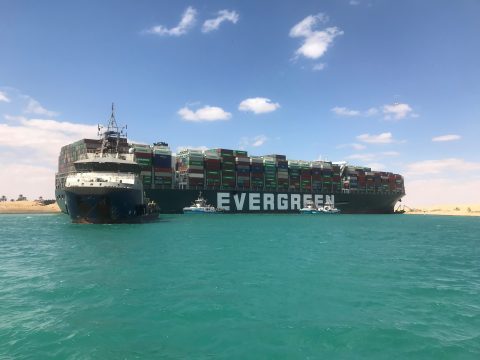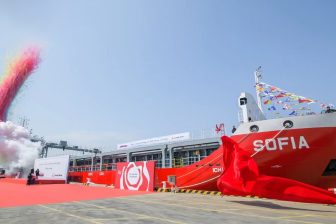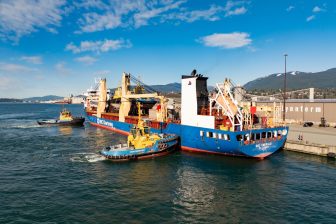
“Captain’s orders caused container ship Ever Given to run aground”
The captain’s orders were the main cause of the Ever Given grounding in the Suez Canal on 23 March. This is what the chief investigator of the Suez Canal Authority (SCA), Sajid Shaisha, has told German news agency DPA, among others.
According to him, when the ship entered the canal the wind shifted it to starboard and the captain wanted to correct it. “He gave too many orders in a very short time, about eight in twelve minutes. Because the ship is so big and slow, it didn’t have enough time to respond”, Shaisha said.
He added that the ship had no technical problems and that strong winds were not the main cause of the disastrous grounding. The investigator pointed out that shortly before the Evergreen ship entered the canal, several other similar ships had passed through without any problems.
Damage claims
The canal authority sent the results of its investigation to the International Maritime Organization (IMO) and the shipping company, Shoei Kisen Kaisha (SKK). Its insurer, UK P&I, said in a statement it would continue to work towards ‘an amicable and fair solution’ to the dispute with the SCA over compensation. According to unconfirmed reports, the insurer has offered USD 150 million in damages, 400 million less than SCA’s latest claim.
The Commercial Court in Ismalia, which lies on the Suez Canal, has given the parties three weeks to reach an agreement. If they cannot reach an agreement, a hearing will probably be held on 20 June. Earlier, another court rejected a request by the shipping company to lift the seizure of the Ever Given.
SKK’s lawyers have previously sought to lay the blame for the grounding at SCA’s door, claiming that the canal operator should not have allowed the vessel to enter without tug assistance given the weather conditions. Even if the court had agreed, the canal operator would not have been held liable because SCA’s terms of use exclude any responsibility. Legally speaking, the two canal pilots onboard only had an advisory role.
This article first appeared in Dutch on NT.nl, a sister publication of PCJ.
You just read one of our premium articles free of charge
Register now to keep reading premium articles.




